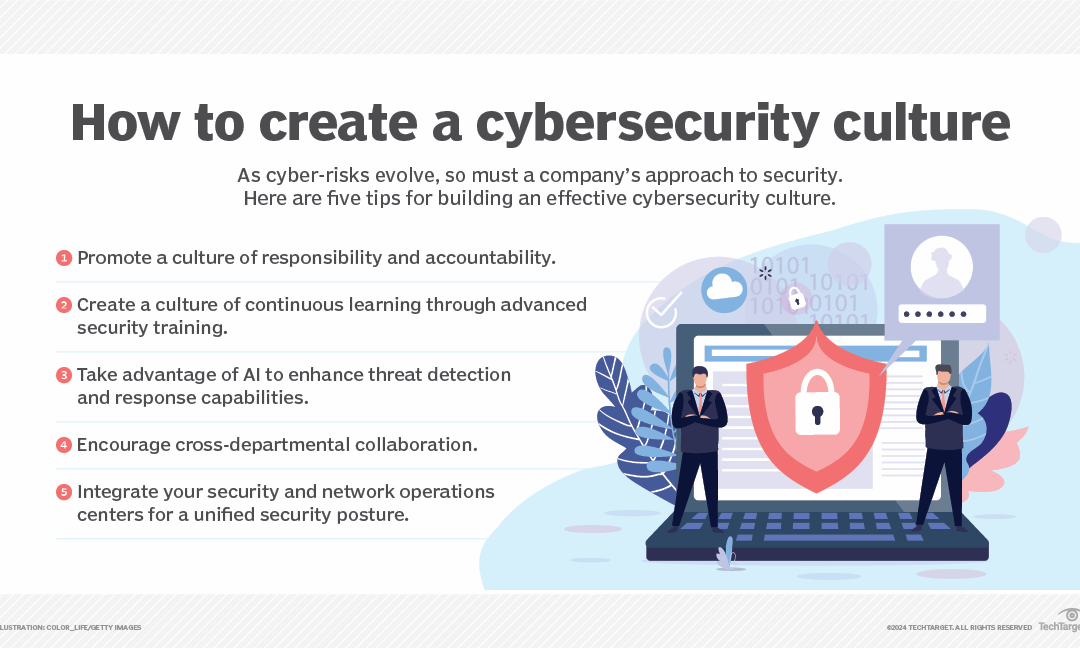Understand the Holiday Season Cyber Threats The holiday season is a time for joy, celebration, and generosity. However, this...


Understand the Holiday Season Cyber Threats The holiday season is a time for joy, celebration, and generosity. However, this...

Cybercriminals steal credit card? Cybercriminals have various methods at their disposal to hack and exploit credit card...

This in-depth cybersecurity planning guide provides information and advice to help organizations develop a successful strategy...

While home health agencies face distinct health IT challenges, collaboration and innovation are crucial for overcoming these...

Understanding Managed IT Services What Are Managed IT Services? Managed IT Services For business are the comprehensive...

IT Support service: is a service that assists individuals and organizations in managing, maintaining, and troubleshooting their computer systems, networks, and other technology-related issues. The primary goal of IT support is to ensure that technology functions smoothly, enhancing productivity and efficiency while minimizing downtime and disruptions. IT support service encompasses a wide range of activities, including setting up hardware and software, resolving technical issues, providing guidance on the use of technology, and implementing cybersecurity measures.
IT support is crucial for modern businesses as it ensures the seamless operation of technology, which is integral to daily operations. Without reliable IT support services, businesses can face significant challenges, including system outages, data breaches, and reduced productivity. IT support services can be provided in-house by a dedicated team or outsourced to specialized service providers.
IT support is typically structured in tiers or levels, each providing different degrees of service and expertise. This tiered approach helps efficiently categorize and address various technical issues based on their complexity and urgency.
Level 1 IT support service, first-line or front-line support, is the initial point of contact for users experiencing technical issues. This level handles basic and common problems that can often be resolved quickly. Responsibilities of Level 1 support include:
Level 1 support personnel need to have good communication skills and a broad understanding of IT systems to provide effective assistance. Their primary focus is to quickly restore normal service to the users with minimal disruption.
Level 2 IT support service, or second-line support, deals with more complex issues that cannot be resolved by Level 1 support. These problems often require more in-depth technical knowledge and experience. Responsibilities of Level 2 support include:
Level 2 support technicians typically have more specialized knowledge and experience. They often have certifications and training in specific areas of IT, such as networking, operating systems, or specific software applications.
Level 3 IT support service, or third-line support, is the highest level of technical support, dealing with the most complex and critical issues. This level typically involves experts and senior technicians with extensive experience and specialized knowledge. Responsibilities of Level 3 support include:
Level 3 technicians are highly skilled professionals who often hold advanced certifications and have a deep understanding of complex IT systems. They play a critical role in ensuring the overall stability and performance of the organization’s IT infrastructure.
In summary, IT support is a multi-tiered service designed to address a wide range of technical issues, ensuring that technology systems operate smoothly and efficiently. Each level of support, from Level 1 to Level 3, plays a crucial role in maintaining the health of IT systems, providing users with the assistance they need to stay productive and secure. Understanding the structure and responsibilities of each support level is essential for businesses to effectively manage their IT resources and deliver high-quality technical support.
In today’s technology-driven world, businesses rely heavily on their IT infrastructure to maintain efficient operations, safeguard data, and provide high-quality services to their customers. To manage and maintain this infrastructure, businesses need reliable IT support services. This section delves into various IT support services and solutions, including an overview of these services, the role of IT support centers, help desk support, technical solutions, and professional IT support services.
IT support services encompass a broad range of activities designed to help businesses manage their technology infrastructure. These services are vital for ensuring that IT systems run smoothly, minimizing downtime, and addressing technical issues promptly. Key aspects of IT support services include:
IT support centers, often referred to as Network Operations Centers (NOCs) or IT service desks, are centralized hubs where IT professionals monitor and manage a company’s IT infrastructure. These centers play a crucial role in maintaining the health and performance of IT systems.
Functions of IT Support Service Centers:
IT support centers are staffed by skilled IT professionals who are trained to handle a wide range of technical issues. They use advanced tools and technologies to monitor and manage IT systems, ensuring that businesses can operate smoothly and efficiently.
The IT support help desk is a critical component of IT support services, providing users with a single point of contact for all their technical issues and service requests. The help desk plays a vital role in ensuring that users can quickly get the assistance they need to resolve their problems and continue working productively.
Key Functions of IT Support Service Help Desk:
IT support tech solutions refer to the tools and technologies used to manage and support IT infrastructure. These solutions are essential for ensuring that IT systems run smoothly and efficiently, and they provide IT support teams with the capabilities they need to monitor, manage, and troubleshoot technical issues.
Common IT Support Tech Solutions:
Professional IT support services are provided by specialized companies that offer a wide range of IT support solutions to businesses. These services are designed to help businesses manage their IT infrastructure more effectively, ensuring that systems run smoothly and that technical issues are resolved promptly.
Benefits of Professional IT Support Services:
Professional IT support services are essential for businesses that want to ensure their IT systems run smoothly and efficiently. By partnering with a professional IT support provider, businesses can benefit from expert support, proactive maintenance, cost savings, and access to advanced tools and technologies.
In conclusion, IT support services and solutions are critical for maintaining the health and performance of IT systems. From IT support centers and help desks to tech solutions and professional services, businesses have a wide range of options for managing their IT infrastructure. By leveraging these services and solutions, businesses can ensure that their IT systems run smoothly, that technical issues are resolved promptly, and that they can focus on their core operations without worrying about IT problems.
As technology continues to evolve at a rapid pace, the landscape of IT support is undergoing significant transformations. Businesses must stay abreast of emerging trends and advancements to maintain a robust and efficient IT infrastructure. This section explores the future of IT support, focusing on emerging trends, the role of artificial intelligence (AI), and the importance of continuous learning.
Several key trends are shaping the future of IT support, driven by advancements in technology and changing business needs. Understanding these trends is essential for businesses to stay competitive and effectively manage their IT infrastructure.
1. Remote and Hybrid Work Environments: The shift towards remote and hybrid work environments has accelerated the demand for robust IT support solutions that can manage and support a distributed workforce. IT support teams are increasingly adopting remote support tools and cloud-based solutions to provide seamless assistance to employees, regardless of their location.
2. Automation and Self-Service: Automation is becoming a cornerstone of IT support, streamlining processes and reducing the burden on support staff. Automated tools can handle routine tasks such as password resets, software updates, and system monitoring. Additionally, self-service portals and knowledge bases empower users to resolve common issues independently, improving efficiency and user satisfaction.
3. Cybersecurity Focus: With the rise in cyber threats, cybersecurity has become a top priority for IT support teams. Future IT support will increasingly focus on proactive security measures, including real-time threat detection, incident response, and continuous monitoring. Enhancing cybersecurity capabilities is crucial to protecting sensitive data and ensuring business continuity.
4. Cloud Integration: The adoption of cloud computing continues to grow, offering scalable and flexible solutions for businesses. IT support will play a vital role in managing cloud-based infrastructures, ensuring seamless integration, and optimizing performance. Support teams will need to develop expertise in cloud technologies and manage hybrid environments that combine on-premises and cloud-based systems.
5. Enhanced User Experience: As businesses strive to improve user experience, IT support will focus on providing personalized and responsive services. Leveraging advanced analytics and user feedback, support teams can tailor their services to meet the specific needs of users, enhancing satisfaction and productivity.
Artificial intelligence (AI) is revolutionizing IT support by introducing advanced capabilities that enhance efficiency, accuracy, and user experience. The integration of AI into IT support processes is set to transform the industry in several ways:
1. Predictive Maintenance: AI-powered predictive analytics can anticipate potential issues before they occur, allowing IT support teams to take proactive measures. By analyzing historical data and identifying patterns, AI can predict hardware failures, software glitches, and other technical problems, reducing downtime and improving system reliability.
2. Intelligent Automation: AI enables intelligent automation of routine tasks, such as ticket routing, issue categorization, and basic troubleshooting. AI-driven chatbots and virtual assistants can handle common user queries, providing instant responses and freeing up human agents to focus on more complex issues.
3. Enhanced Security: AI plays a critical role in enhancing cybersecurity efforts. AI algorithms can detect anomalies, identify potential threats, and respond to security incidents in real time. Machine learning models continuously learn from new data, improving their ability to detect and mitigate cyber threats.
4. Natural Language Processing (NLP): NLP technology allows AI to understand and interpret human language, enabling more effective communication between users and support systems. AI-powered chatbots can engage in natural conversations, providing accurate and contextually relevant solutions to user problems.
The rapid pace of technological change necessitates continuous learning for IT support professionals. Staying updated with the latest advancements and acquiring new skills is essential for delivering effective support and maintaining a competitive edge.
1. Keeping Up with Technological Advancements: Technology evolves quickly, and IT support professionals must stay informed about new developments, tools, and best practices. Continuous learning ensures that support teams can effectively manage emerging technologies and address new challenges.
2. Enhancing Skill Sets: Continuous learning allows IT support professionals to expand their skill sets and specialize in areas such as cloud computing, cybersecurity, AI, and automation. Acquiring new skills enhances their ability to provide comprehensive support and adapt to changing business needs.
3. Improving Problem-Solving Abilities: By continuously learning and staying updated with industry trends, IT support professionals can develop better problem-solving abilities. They can identify and resolve issues more efficiently, improving overall support quality and user satisfaction.
4. Career Growth and Development: Investing in continuous learning benefits not only the organization but also the individual professionals. It opens up opportunities for career growth, advancement, and increased job satisfaction. Organizations that prioritize continuous learning create a culture of innovation and excellence.
The future of IT support is shaped by emerging trends, the integration of AI, and the emphasis on continuous learning. Businesses that embrace these changes and invest in advanced IT support solutions will be well-equipped to navigate the complexities of the modern technological landscape. By leveraging the power of AI, focusing on cybersecurity, and fostering a culture of continuous learning, IT support teams can ensure seamless operations, enhanced security, and improved user experience.
The field of IT support offers a diverse range of career opportunities for individuals with varying levels of expertise and experience. From entry-level positions to specialized roles, there is a clear career path that can lead to significant professional growth and development.
Entry-Level Positions: Roles such as IT support technician, help desk support, and desktop support are excellent starting points for individuals new to the industry. These positions provide foundational knowledge and experience in troubleshooting, customer service, and basic technical skills.
Intermediate Roles: As professionals gain experience, they can advance to roles such as IT support specialist, network support technician, and systems administrator. These positions involve more complex technical tasks, including network management, system configuration, and advanced troubleshooting.
Advanced Careers: With further experience and specialized training, IT support professionals can move into senior positions such as IT support engineer, IT manager, and IT director. These roles involve strategic planning, project management, and leadership responsibilities, overseeing the overall IT infrastructure and support teams.
Specialized Fields: IT support also offers opportunities to specialize in areas such as cybersecurity, cloud computing, and IT service management. Specialization can lead to roles like cybersecurity analyst, cloud solutions architect, and IT service manager, each requiring specific expertise and offering higher earning potential.
Overall, IT support careers are dynamic and offer significant opportunities for growth, making it a rewarding field for those passionate about technology and problem-solving.
Certifications and continuous training are crucial in the IT support field, providing professionals with the skills and credentials needed to excel in their careers. Here’s why they are valuable:
Skill Enhancement: Certifications ensure that IT support professionals have up-to-date knowledge and skills. Training programs and certifications from reputable organizations, such as CompTIA, Microsoft, and Cisco, cover essential areas including network management, cybersecurity, and cloud services.
Career Advancement: Holding industry-recognized certifications can significantly enhance career prospects. Certifications demonstrate a commitment to the profession and can be a deciding factor in promotions and hiring decisions. They often lead to higher salaries and better job opportunities.
Credibility and Trust: For employers and clients, certifications assure that IT support professionals are competent and knowledgeable. This trust is essential in a field where the security and efficiency of IT systems are critical to business success.
Staying Current: The IT industry is continuously evolving, and ongoing training ensures that professionals stay current with the latest technologies and best practices. Continuous learning is vital for adapting to new challenges and innovations in the field.
Effective IT support services are essential for the success of any modern business. They ensure the smooth operation of IT systems, enhance productivity, and protect against cyber threats. Here are key reasons why IT support services are crucial:
Operational Efficiency: IT support services help maintain the performance and reliability of IT systems, minimizing downtime and disruptions. This efficiency is critical for maintaining business operations and meeting customer expectations.
Cybersecurity: With the increasing prevalence of cyber threats, robust IT support services are essential for protecting business data and systems. IT support teams implement security measures such as firewalls, antivirus software, and regular system updates to safeguard against cyber attacks.
Cost Savings: Outsourcing IT support can be more cost-effective than maintaining an in-house team. Professional IT support services provide access to skilled technicians and advanced tools without the overhead costs of hiring and training full-time staff.
Focus on Core Business Activities: By handling technical issues, IT support services allow businesses to focus on their core activities. This focus leads to improved productivity and the ability to allocate resources more effectively towards business growth and innovation.
Scalability and Flexibility: IT support services offer scalable solutions that can grow with the business. Whether it’s adding new users, implementing new technologies, or expanding into new markets, IT support teams provide the flexibility needed to adapt to changing business needs.
In conclusion, IT support is a vital component of modern business operations. Career opportunities in IT support are diverse and rewarding, with significant potential for growth. Certifications and continuous training are essential for career advancement and maintaining credibility. For businesses, robust IT support services ensure operational efficiency, cybersecurity, cost savings, and the ability to focus on core activities, ultimately contributing to long-term success and competitiveness.
Worried about being a target for phishing attacks? Protect your company today!
Understand the Holiday Season Cyber Threats The holiday season is a time for joy, celebration, and generosity....
Cybercriminals steal credit card? Cybercriminals have various methods at their disposal to hack and exploit credit...